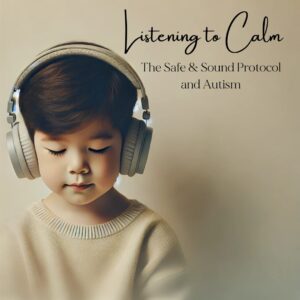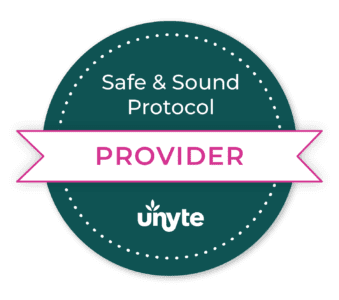Divorce is never easy, especially when kids are in the picture. After all, you’re not just dividing assets and figuring out who gets the cat—you’re also splitting time, emotional energy, and responsibility for the most important people in your life. But when the dust settles, there’s one undeniable truth: the kids still need both of you. This is where the concepts of co-parenting and parallel parenting come into play after a divorce.
Let’s dive into what these two approaches mean, and explore some evidence-based strategies that put the children’s well-being front and center.
Co-Parenting: The Gold Standard (When It Works)
In an ideal world, divorced parents would both embrace co-parenting—a model where both parents work together as a team to raise their children. They coordinate schedules, communicate regularly, and even attend events together (without someone breaking into a sweat). In a successful co-parenting relationship, the focus is on what’s best for the children, with both parents setting aside personal differences to make joint decisions about their child’s needs.
Sounds dreamy, right? Well, it can be, but it’s also a lot of work. Co-parenting requires a high level of communication, collaboration, and—brace yourself—humility. It often means letting go of your grievances and disappointments with your ex, and maybe even biting your tongue from time to time. (No one said it was easy.)
Evidence-Based Practices for Co-Parenting
Research suggests that kids benefit most when their parents can maintain a cooperative co-parenting relationship. According to a study published in the Journal of Family Psychology, children whose parents engage in effective co-parenting are more likely to exhibit emotional stability and resilience. Some key components of successful co-parenting include:
- Effective Communication: Keeping the lines of communication open is crucial. This doesn’t mean you have to become best friends with your ex. But it does mean sharing important information about the kids’ needs, school activities, medical appointments, and any changes in behavior that might signal they need extra support.
- Consistency: When parents present a united front, children feel more secure. This includes having similar rules, discipline styles, and routines in both households. It’s like giving your child a sense of predictability in an otherwise unpredictable situation.
- Conflict Management: Disagreements will happen; it’s inevitable. However, how you handle them makes all the difference. Research shows that children are most negatively impacted not by divorce itself, but by ongoing conflict between parents. That means keeping arguments away from the kids and resolving disputes in a way that models healthy problem-solving.
When Co-Parenting Isn’t an Option: Enter Parallel Parenting
Co-parenting can be challenging, especially if there’s a history of high conflict or unresolved anger. For parents who struggle to communicate without things getting heated, parallel parenting might be a more realistic approach. Think of it as an “agree to disagree” plan, where you both do your best to raise your children separately, minimizing direct contact with each other.
Parallel parenting allows both parents to maintain involvement in their children’s lives while avoiding the stress and tension of constant interaction. Each parent makes day-to-day decisions independently when the kids are with them, which can be a relief when emotions are still running high.
Evidence-Based Practices for Parallel Parenting
Evidence supports parallel parenting as an effective way to protect children from the harmful effects of parental conflict. A study in Child Development found that children exposed to high levels of inter-parental conflict are at a greater risk for emotional and behavioral problems. By limiting direct communication, parallel parenting can create a more peaceful environment for the kids. Here’s how it can work:
- Structured Guidelines: Parallel parenting typically involves a more rigid parenting plan that outlines specific times for drop-offs, pick-ups, and other logistics. Having this structure minimizes the need for frequent discussion or negotiation, which can reduce conflict.
- Written Communication: When you need to communicate, stick to written forms like email or co-parenting apps. This not only provides a buffer, giving each of you time to process and respond thoughtfully, but it also serves as a record of conversations. (Just in case, you know, things get murky.)
- Setting Boundaries: In parallel parenting, you each create the rules for your own household. This means your ex might let the kids eat dessert before dinner, and while it might make you cringe, you simply agree to not engage in those battles. Pick your fights wisely; the kids will thank you for it later.
Coping with Your Own Feelings
Let’s not sugarcoat it: transitioning from partners to co-parents (or parallel parents) is tough. Anger, grief, and disappointment are real, and it’s crucial to acknowledge and process these emotions. Seeking support from a counselor, coach, or parenting group can be immensely helpful. These feelings won’t just vanish overnight, but they can become more manageable over time with the right support.
And let’s not forget—showing your kids how to handle big feelings in a healthy way is a gift that will serve them for life. Remember, it’s okay to be honest with your children about emotions, just be mindful not to place them in the middle or make them feel responsible for your feelings.
Keeping the Kids at the Center
In both co-parenting and parallel parenting, the goal is the same: to nurture your children through a difficult transition and help them feel safe, loved, and supported. Whether you’re able to attend school events together or simply pass the baton at the curb without drama, know that every effort you make to keep your children’s best interests at heart is a step in the right direction.
Humility and Healing
A final note on humility: It takes courage to look beyond your hurt and anger to focus on your child’s needs. Recognize that you’re not perfect (neither is your ex), and that’s okay. Seeking guidance from a therapist or parenting coach can help you navigate these waters, build new skills, and get a clearer perspective on what matters most—your children’s well-being.
So, whether you’re co-parenting or parallel parenting, take a deep breath. You’re embarking on a path that will have its bumps, but with the right mindset and support, it can lead to a healthier, happier future for everyone involved. Your kids are worth it—and so are you.
-

Katie Brou, HS-BCP is passionate about helping families thrive. A wife and mother herself, she specializes in guiding young adults, couples, and parents through the complexities of family life, fostering growth and healthy relationships along the way.
View all posts
- Choosing Wisely: Co-Parenting vs. Parallel Parenting After Divorce
- 7 Non-Negotiable Rules to Safeguard Your Child’s Well-Being After Divorce
- Communicating with Your Ex: Keeping It Civil for the Kids
- Helping Kids Navigate Their Emotions After Divorce
- The New Normal After Divorce: 10 Tips for Successful Coparenting
 (281) 305-9387
(281) 305-9387









